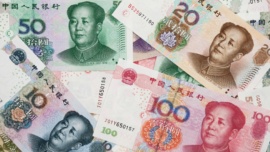The government has made a reasonable move in investing some of its fiscal reserves in the provincial projects of Guangdong via its co-operation with China Development Bank, a decision that still adheres to MSARs cautious investment approach, University of Macau finance academic Rose Lai Neng told Business Daily.
The public is expecting a clearer picture from the government of its plan by next month or early August involving the investment of an initial MOP10 billion (US$1.25 billion) to MOP20 billion of fiscal reserves in projects in Guangdong through the provincial authorities and China Development Bank. Secretary for Economy and Finance Lionel Leong Vai Tac expects a return of 4 to 5 per cent per annum.
“As there are not many other attractive investment channels worldwide, its a reasonable decision to have the fiscal reserves invested in the state, professor of finance at University of Macau Rose Lai Neng says.
“Political concerns aside, not many other options guarantee better returns than this [investing in Guangdong]; I think with a 4 per cent return the new investment plan is a safe and reasonable one for our fiscal reserves as China is now exporting its big [infrastructure] projects, the professor said. This return rate is achievable and not causing us losses.
The citys fiscal reserve was created in February 2012, built on a basic reserve equivalent to 150 per cent of the latest total central services budget approved by the Legislative Assembly plus an extraordinary reserve equivalent to remaining past balances minus contributions to the basic reserve.
As introduced by the economy and finance officials to the Legislative Assembly on Friday, Macaus fiscal reserves grew to nearly MOP350 billion by May, of which the basic reserve amounted to about MOP134 billion.
The return rate on the fiscal reserves in its first year of 2012 was 1.6 per cent, growing to 3 per cent in 2013, according to data from the Monetary Authority of Macau. Last year, the return rate on the fiscal reserve was 2 per cent, generating about MOP4.67 billion profit.
“There have been criticisms that the return rate has been low, and that the fiscal reserve system was set up very late, the professor said. It is against the backdrop that Macaus huge income [through gaming] has not been imagined before, and our Authority was still not very experienced in reserve investment.
But the academic agreed that the Monetary Authority has been at least prudent in its investment approach with the fiscal reserves.
It was only in the first half of last year that the Authority began investing its fiscal reserves in the equity markets.
As at the first five months of this year, profit generated from equity-related investment occupied around 48 per cent or MOP3.3 billion of the citys total profit of MOP6.9 billion from the investment of fiscal reserves, official data reveals. Last year, this proportion of profit generated from equity-related investment stood at around 30 per cent of the overall investment profit for fiscal reserves while the majority of earnings were derived from the investment in bonds and related interests.























